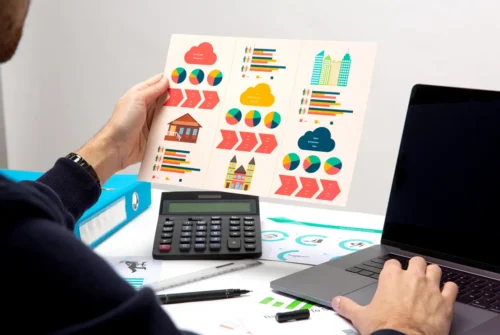
The 4 skills of speaking, reading, writing and listening are covered in GCSE French. To succeed, you must demonstrate your mastery of each discipline.
There are 2 stages in that framework:
- Foundation tier (grades 1–5)
- Higher tier (grades 4–9)
Once you have chosen the tier you want to take, you must complete all four of the question papers at that level and in the same order.
The syllabus covers 3 main themes across all 4 question papers:
- Identity and culture
- Local, national, international as well as global areas of interest
- Current and future study
- Employment
Any of the above themes will require you to comprehend them, provide knowledge, and express your ideas. Learn&Co can provide you with an online GCSE French tutor so that you can obtain the best marks without disturbing your peace of mind.

Image Credit: https://www.istockphoto.com/photo/students-writing-their-gcse-exam-gm525409799-525409799?phrase=GCSE
The following are a few tips for achieving a grade of 9 in your GCSE French exam.
1. Start early!
Do not wait till the final minute to revise. The process of learning a language at a high level takes time, thus trying to fit everything into a few sessions is inadequate.
2. Prioritise reading a listening
We think reading and listening should be prioritised, especially at this level of your language study because that is how you pick up useful vocabulary and grammar.
3. Expand your vocabulary
Several French words and phrases, all arranged by theme, can help you broaden your vocabulary. Try out different phrases. Getting familiar with specific grammar rules is a good idea.
4. Use a wide mix of resources
It is usually preferable to have access to a range of resources rather than just one kind. Don’t just base your education on the Revision Guide you purchased or the YouTube channel you follow.
5. Reviews should be little but often
Less and more frequently is preferable to more and less frequently when it comes to exposure frequency. Four 30-minute sessions each week are preferable to one 2-hour session on the weekend.
6. Structure your revision
It is important to have a traditional, structured approach to education When learning new terms, we advise categorising them.
7. Five mini-steps to new vocabulary success
Follow these 5 steps when learning any new vocabulary:
- Learn
- Repeat
- Leave it aside
- Revisit
- Recycle
8. Contextualise the words
Find every single justification to utilise each term in a genuine context, if at all possible. Take the following scenario: You see a bridge with your own eyes, point to it, and say, “Le pont,” and you do the same when you remember that stunning old bridge you saw in Paris.
9. Don’t forget fun
You should also use impromptu, enjoyable, light-hearted, but linguistically challenging resources in addition to what we mentioned in point 6.
10. Practice past papers
Your closest pals are the past papers! Aim to complete at least two tests per month from various exam boards. You can look them up online or request more from your instructor or tutor.
Having someone review your written French is an excellent idea as well as you don’t keep repeating the same errors.





